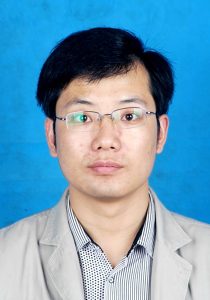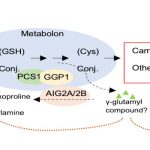Qiang Wei: Plant Physiology First Author

 Qiang Wei, first author of “Kinase regulators evolved into two families by gain and loss of ability to bind plant steroid receptors”
Qiang Wei, first author of “Kinase regulators evolved into two families by gain and loss of ability to bind plant steroid receptors”
Current position: Research Assistant at the College of life sciences of Shaanxi Normal University
Education: PhD in Plant Biology, Shaan xi Normal University, China
Non-scientific interests: Reading and Music.
Brief bio:
I completed my doctoral dissertation under the supervision of professor Wu at Shaanxi Normal University. My Ph.D. research focuses on elucidating the underlying evolutionary mechanisms of allosteric regulation of Brassinosteroids (BRs) receptor-like kinases. Interestingly, we found that the BR receptors gradually increased the kinase function during evolution, including an increase of kinase activity and an acquisition of a new interaction partner, BKI1. BKI1 inhibits BRI1 signaling in plants. In Arabidopsis, BKI1 has six additional homologs named MAKRs. They play important roles in regulating the function of receptor kinases. However, the functional evolution of the BKI1/MAKRs is poorly understood. In this paper, our study reveals the underlying evolutionary mechanism of the BKI1 and MAKR families, adding insights to understanding the regulation and evolution of receptor-like kinases.
论文:Kinase regulators evolved into two families by gain and loss of ability to bind plant steroid receptors
第一作者:魏强
目前职位:陕西师范大学生命科学学院,科研助理
教育经历:2014-2021年陕西师范大学生命科学学院植物学博士
兴趣爱好:阅读和音乐
个人简历:
我的博士论文是在陕西师范大学吴光教授的指导下完成的。我的博士研究重点是阐明油菜素内酯(BR)受体类激酶变构调控的进化机制。有趣的是,我们发现BR受体在进化过程中逐渐增加了激酶功能,包括增加激酶活性和获得一个新的互作组分——BKI1。BKI1对抑制植物中的BRI1信号传导至关重要。在拟南芥中,除BKI1外,还有另外六个名为MAKR的同源蛋白。它们在调节受体激酶的功能方面发挥重要作用。然而,人们对BKI1/MAKRs的功能演化了解甚少。在本研究中,我们通过系统发育分析及功能研究系统的揭示了BKI1和MAKR家族的分子进化机制,同时发现BKI1家族与BR受体家族存在共进化,为理解类受体激酶的调控和进化机理提供借鉴。



